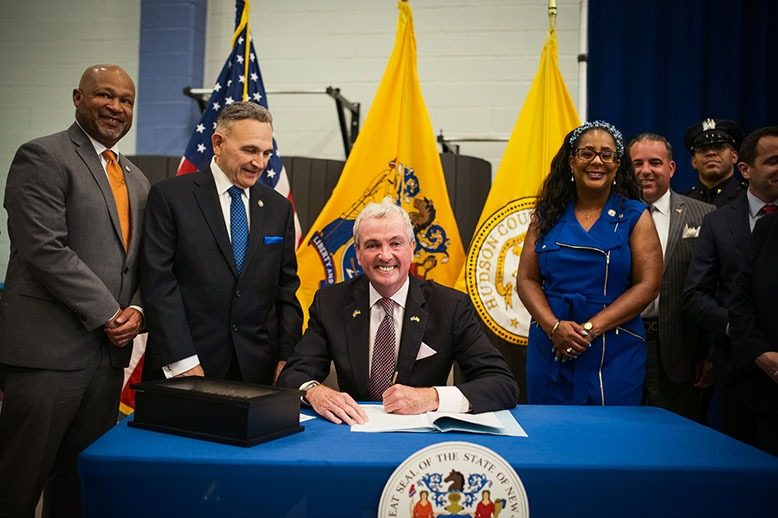
New Jersey became the 47th state to establish a police licensure program when Governor Phil Murphy signed bill S2742/A4194 into law in July 2022. The new legislation, allocating $6 million for the program, requires all law enforcement officers to hold a current, valid license issued by the Police Training Commission (PTC) in order to become and remain employed anywhere in the state. To obtain a license, which must be renewed every three years, officers must pass training courses and psychological evaluations and adhere to uniform, statewide, professional standards.
“Officers holding these licenses will be proven professionals who fulfill their duties with honesty and integrity, helping law enforcement strengthen and rebuild the bonds of trust between police and residents,” says Murphy.
The new law also grants the PTC the authority to remove the license of any officer who violates professional standards, including being convicted of any crime or act of domestic violence, having two or more DUI offenses, and supporting violence, hatred, discrimination or bias against any race, creed, sexual orientation or anything else protected by the federal law against discrimination.
“The bill, while it is progress, is not as strong as it could or should be,” says Racquel Romans-Henry from the Trenton-based advocacy group Salvation and Social Justice.
“We were looking for there to be an addition of some group that represents communities most impacted by policing,” says Yannick Wood from the New Jersey Institute for Social Justice. His organization also calls for the creation of a public, national, government-owned database of licensing decisions and civilian review boards for complaints of police misconduct.



